Fish scientists at Auburn University have recently refined a gene...
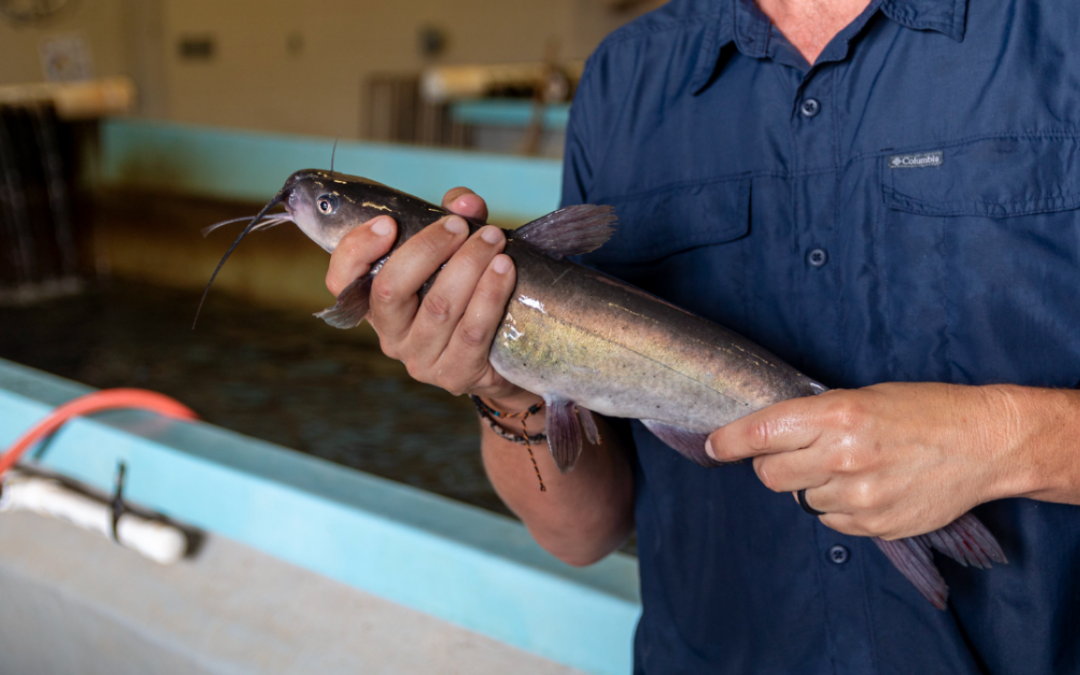

Fish scientists at Auburn University have recently refined a gene...
Andrew L. Rypel will serve as director of the Auburn University School of Fisheries, Aquaculture and Aquatic Sciences, effective March 22. He comes from the University of California at Davis, where he currently serves as director of the Center for Watershed Resources...
Two College of Agriculture faculty members were announced among Auburn University’s five 2024 Alumni Professors Sept. 20. Eve Brantley, a professor and associate director of the Alabama Cooperative Extension System, is a renowned expert in water quality and...
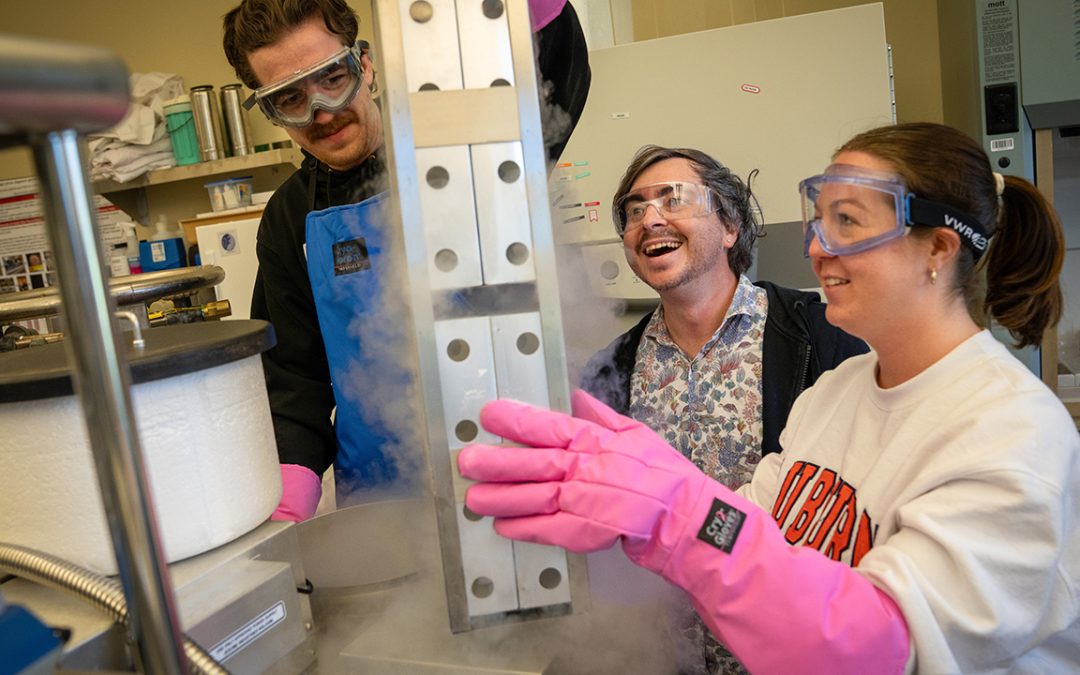
Better breeding ability would make catfish farming more efficient and profitable The $437 million U.S. catfish industry is in need of better genetic and breeding...
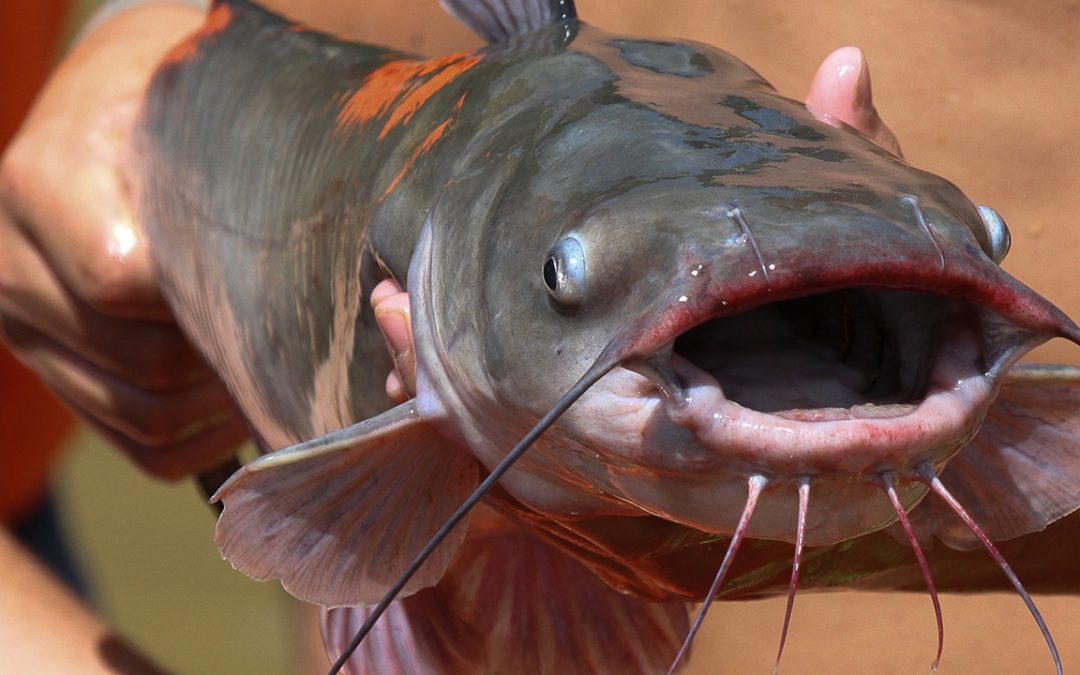
Catfish farmers may be hurting their profitability by needlessly sacrificing male catfish when collecting sperm for breeding, according to a recent Auburn study. The...
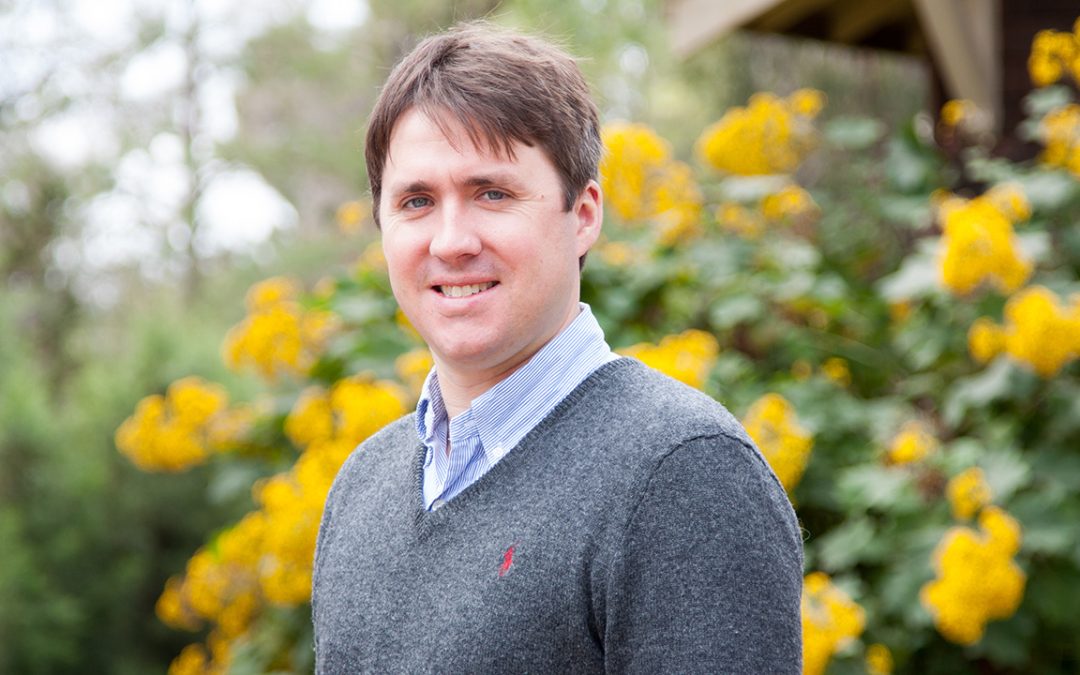
Andrew L. Rypel will serve as director of the Auburn University School of Fisheries, Aquaculture and Aquatic Sciences, effective March 22. He comes from the University...

Auburn Agriculture faculty, staff, students win 2019 sustainability awards
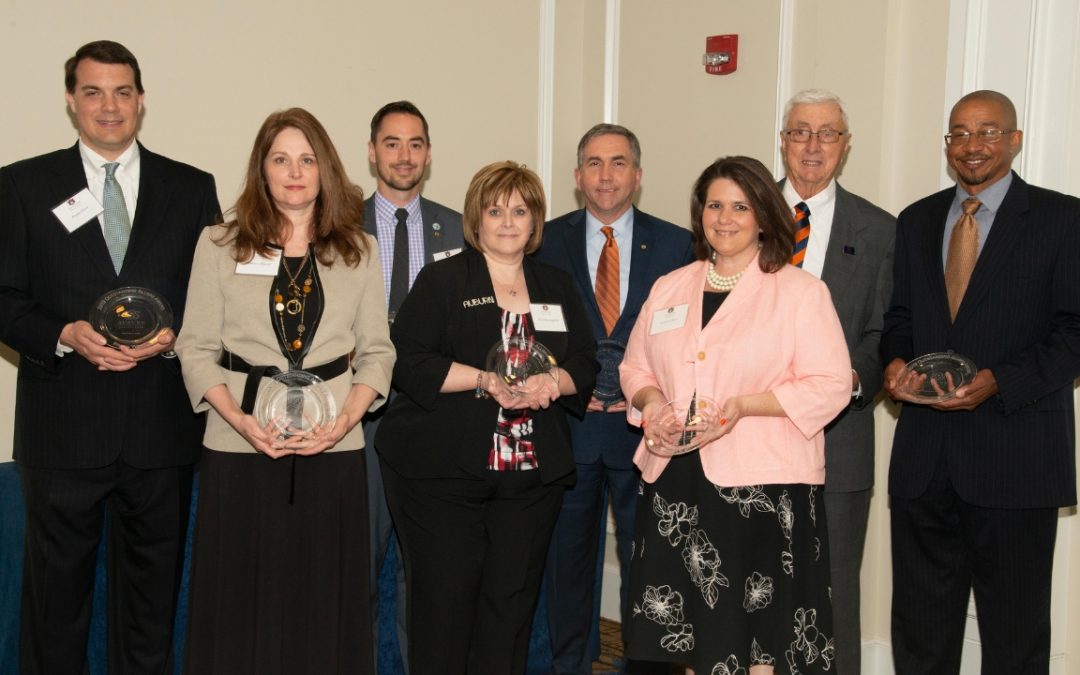
PHOTO: The Auburn University College of Agriculture's 2019 Alumni Award recipients included, from left, Bryan Word, Shannon Weaver, Mike Leonard, Alice McLaughlin, Dr. Calvin Johnson, Annette Bitto, John Woodruff and Johnny Grace. Eight successful professionals who...
Several College of Agriculture faculty members have been awarded promotion, tenure or both, effective fall semester 2019, Auburn Provost Bill Hardgrave has announced. Seven of those individuals will begin the 2019-20 academic year as full professors. They include Eve...
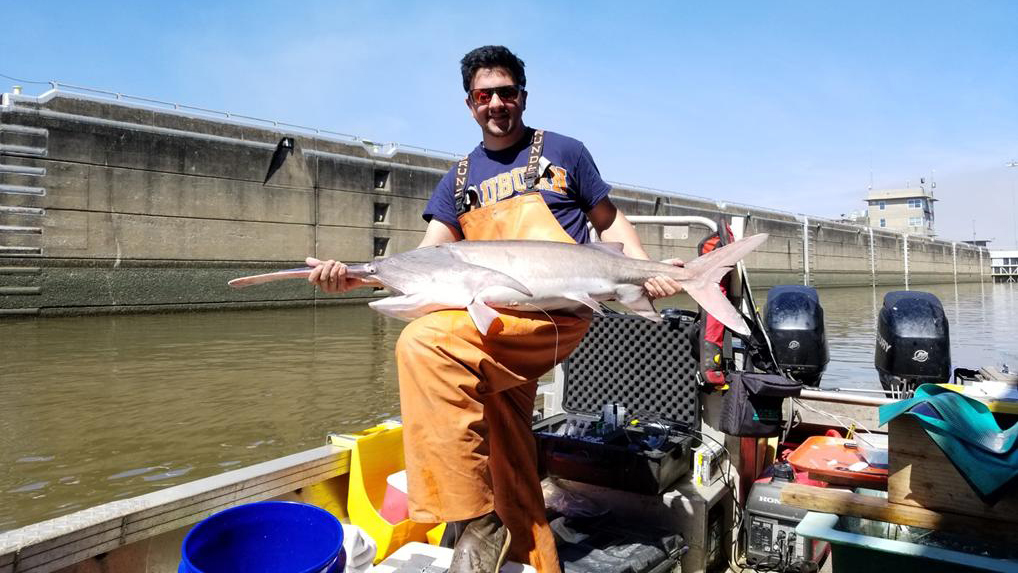
For months now, an Auburn University research team has been keeping close tabs on roughly 250 tagged paddlefish and smallmouth buffalo in the Alabama River in an effort to learn more about how lock-and-dam systems on a waterway impact fish movement upstream and down.
Nineteen Auburn College of Agriculture and Alabama Agricultural Experiment Station faculty who collectively secured more than $11.8 million in research funding in the past fiscal year were among the 32 honorees in the college’s 2018 faculty and staff awards program in...
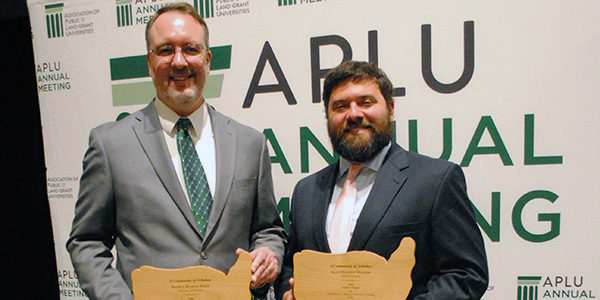
An Auburn University associate professor and a department chair soon to join the Auburn family were honored in November by the USDA’s Association of Public and Land-grant Universities’ annual meeting in New Orleans.
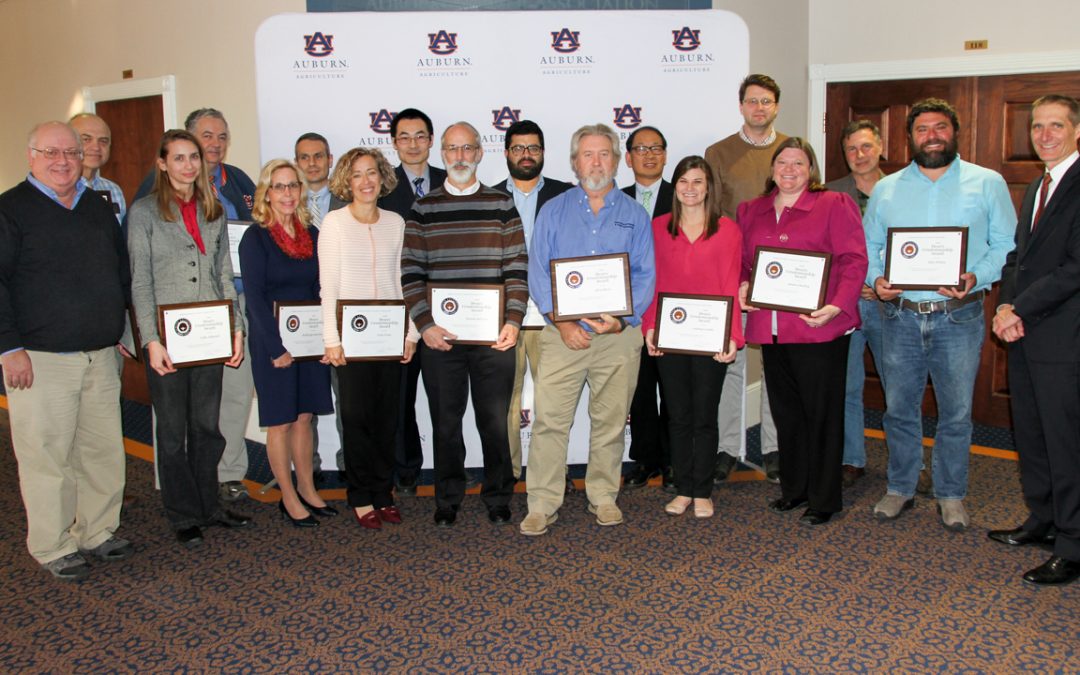
Both professors in the College of Agriculture’s School of Fisheries, Aquaculture and Aquatic Sciences, are among the Auburn University faculty members campuswide who have received prestigious honors as part of Auburn’s 2018 Faculty Awards program.
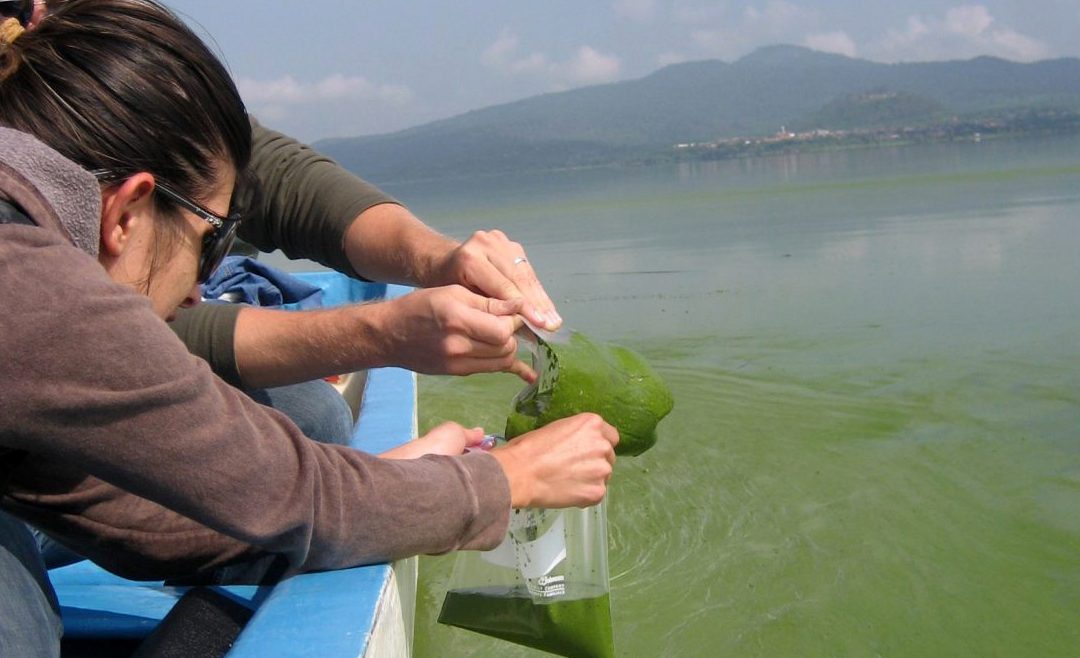
Auburn University aquatic ecologist Alan Wilson and a team of biological, molecular and environmental scientists from three other U.S. institutions are taking on toxic cyanobacteria, also called blue-green algae or pond scum, in a five-year, $2 million National Science Foundation project.
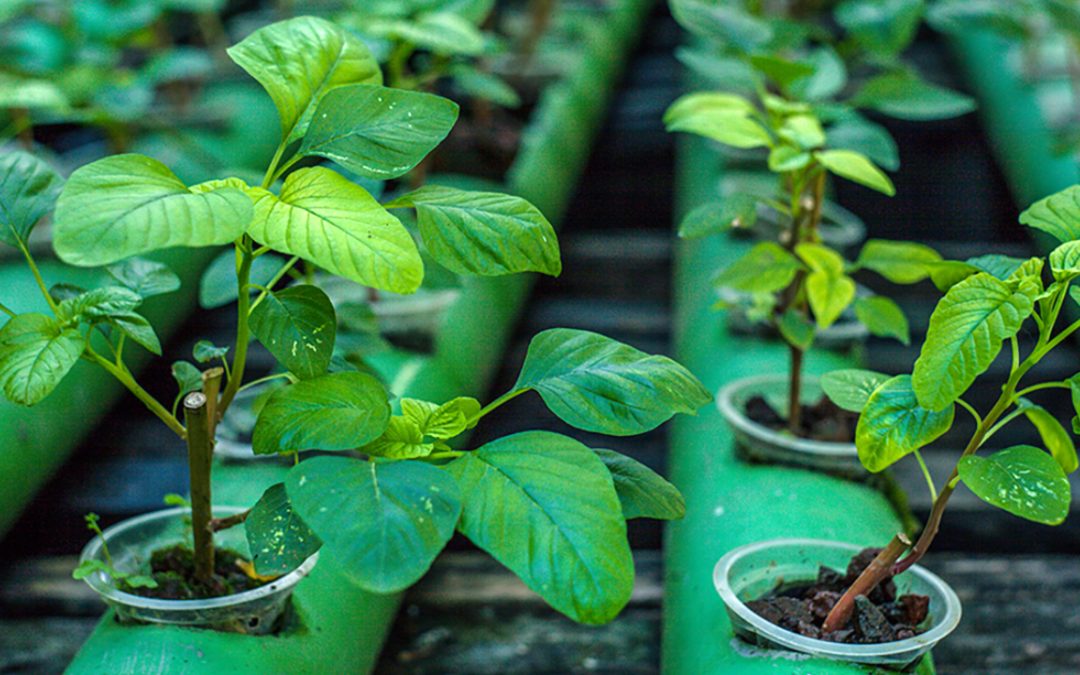
Auburn University’s School of Fisheries, Aquaculture and Aquatic Sciences and Fisheries Business Institute will host a commercial aquaponics workshop
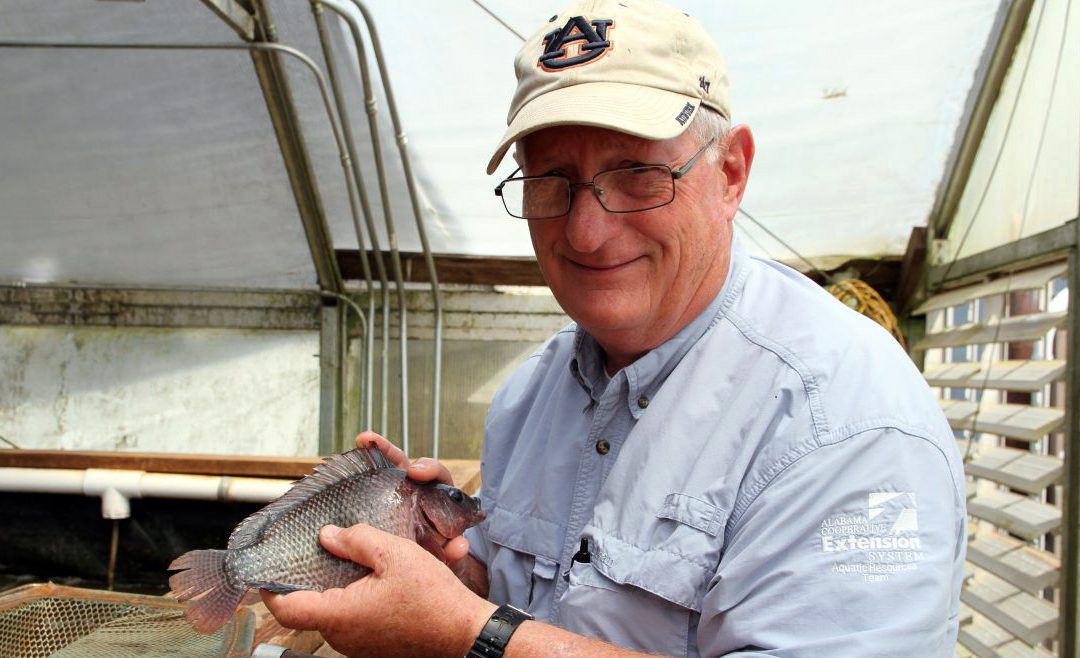
Auburn University’s Aquaponics Working Group has a new vision for U.S. aquaculture, one that includes far more predictability and efficiency than today’s timeworn models of commercial fish production.
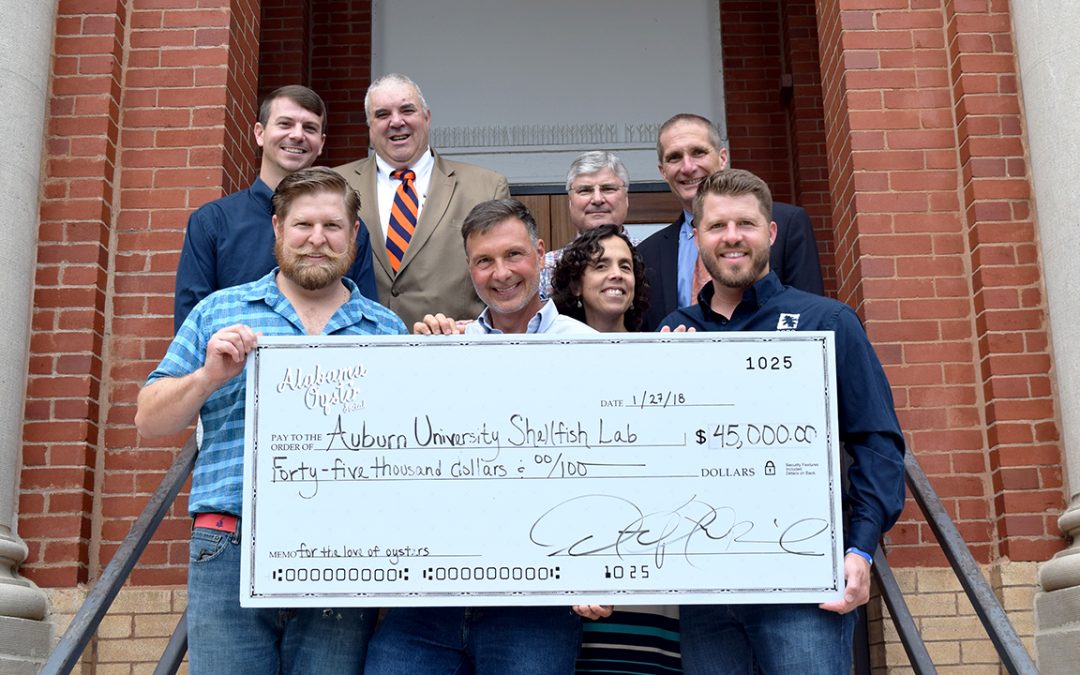
A 32-foot raw bar boasting 5,000 premium farm-raised oysters drew hundreds of oyster lovers to Ag Heritage Park earlier this year for the 2018 Alabama Oyster Social. In addition to emptying all 5,000 half shells, attendees also raised $45,000 to support Auburn University’s Shellfish Lab at Dauphin Island and, in turn, Alabama oyster farmers.
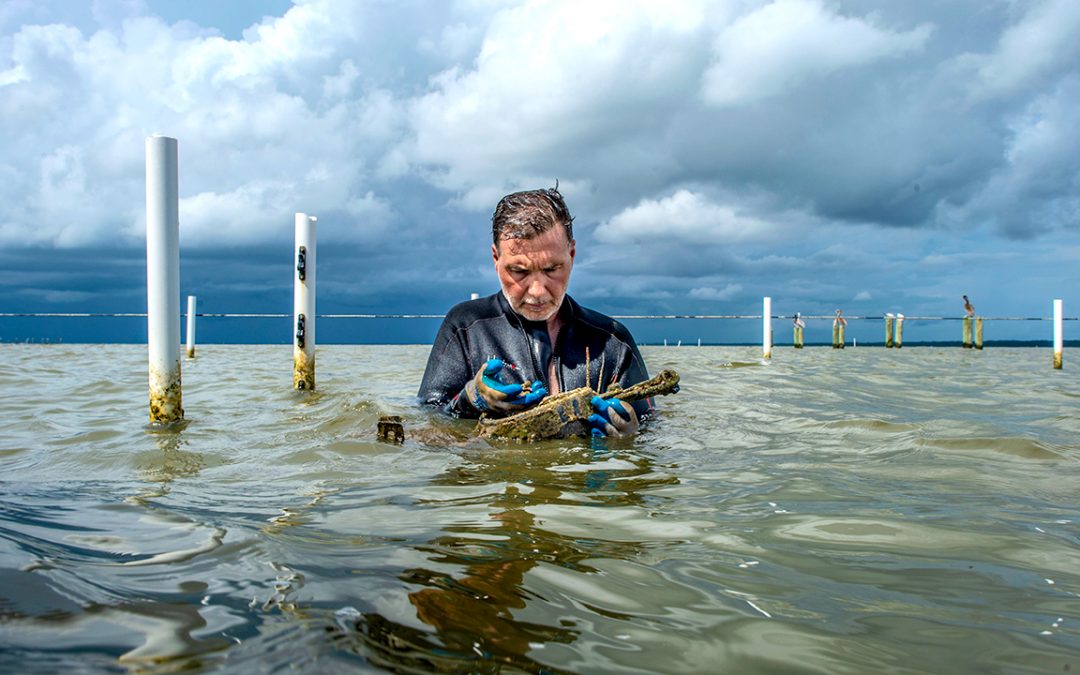
Auburn University marine scientist Bill Walton, one of the driving forces behind the Gulf Coast’s up-and-coming off-bottom oyster-farming industry, has landed a $456,646 federal grant to help ensure that farmed oysters bound for the premium half-shell market are as safe as possible for human consumption.
College students who participate in hands-on, faculty-mentored research en route to their bachelor’s degrees cite multiple personal and professional benefits the experience delivers, from strengthening their time-management, critical-thinking and communication skills...
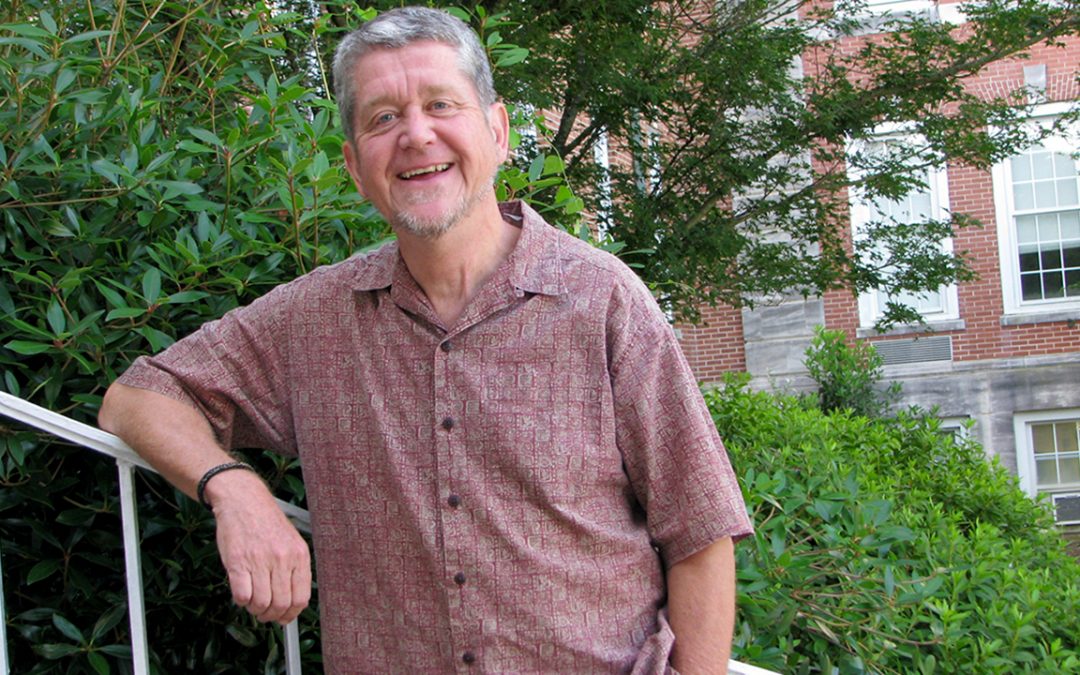
Bill Deutsch, a retired Auburn University aquatic ecologist who has spent almost three decades exploring, restoring and championing Alabama’s 132,000 miles of rivers and streams, will unveil his debut book, Alabama Rivers, A Celebration and Challenge, later this month in Auburn.
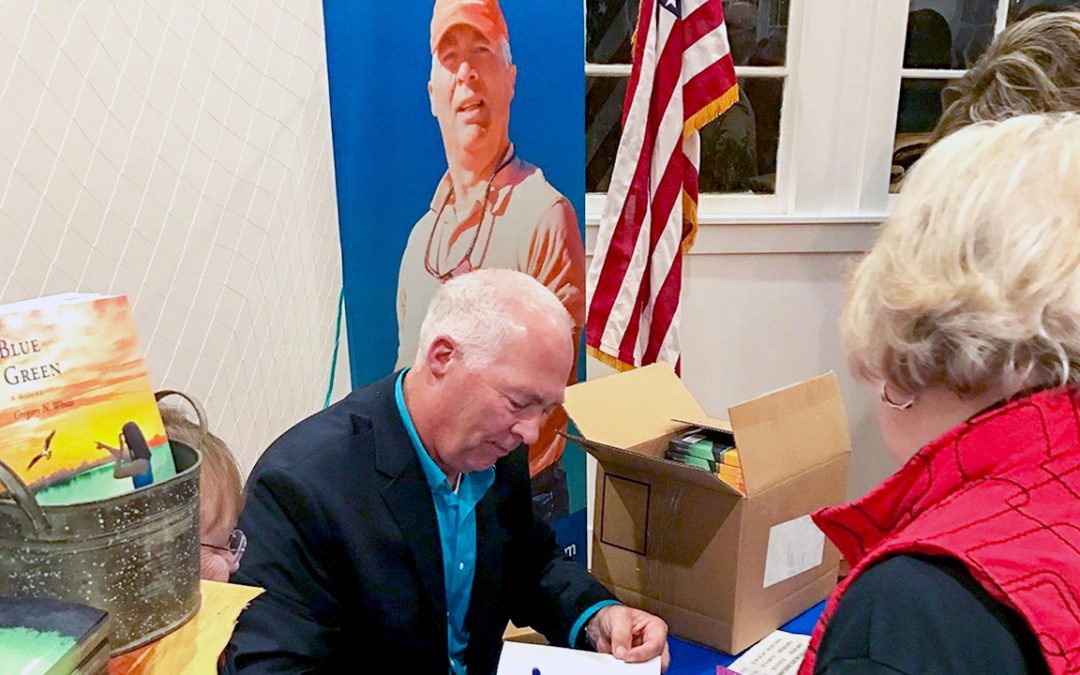
When Gregory Whitis began his undergraduate studies in zoology at Iowa State University in the mid-’70s, he had no idea there was such a place as Auburn University; he had never heard the word “aquaculture”; and the idea of one day living in the Deep South for sure had never entered his mind. And catfish farming? Was that a joke?
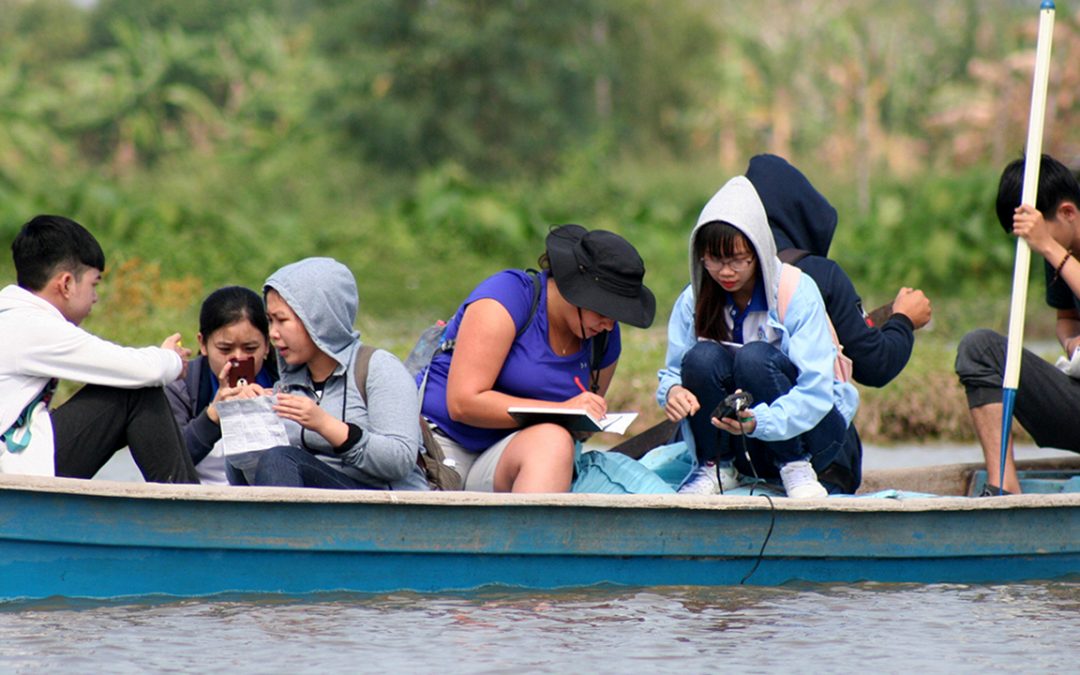
Ideal may not be the first word that comes to mind when one considers Vietnam as a destination, but that’s how School of Fisheries, Aquaculture and Aquatic Sciences associate professor Bill Daniels describes the locale for the study abroad version of his Auburn aquaculture production course.
College of Agriculture faculty members claimed the lion’s share of recognition during Auburn University’s 2018 Faculty Awards Dinner in late February. The ceremony formally honored all Auburn faculty who received the university’s highest awards in the 2017-18 academic...
Auburn researchers will use an almost $321,000 U.S. Department of Agriculture grant to field-test a novel vaccine that would effectively and economically control one of the most serious bacterial infections in the aquaculture industry today.
By Paul Hollis Auburn researchers will use an almost $321,000 U.S. Department of Agriculture grant to field-test a novel vaccine that would effectively and economically control one of the most serious bacterial infections in the aquaculture industry today. Columnaris...
By Paul Hollis Long-term research is vital to the future of U.S. production agriculture, but farmers can’t always afford to wait for solutions to their most pressing problems. That’s why a new Auburn University funding program is providing shorter-term grants that...
Zhanjiang “John” Liu—Auburn University’s associate provost and associate vice president for research, and a professor in the School of Fisheries, Aquaculture and Aquatic Sciences—was named a Fellow of the World Aquaculture Society at its annual meeting, held June...

Auburn Agriculture faculty, staff, students win 2019 sustainability awards

PHOTO: The Auburn University College of Agriculture's 2019 Alumni Award recipients included, from left, Bryan Word, Shannon Weaver, Mike Leonard, Alice McLaughlin, Dr. Calvin Johnson, Annette Bitto, John Woodruff and Johnny Grace. Eight successful professionals who...
Several College of Agriculture faculty members have been awarded promotion, tenure or both, effective fall semester 2019, Auburn Provost Bill Hardgrave has announced. Seven of those individuals will begin the 2019-20 academic year as full professors. They include Eve...

For months now, an Auburn University research team has been keeping close tabs on roughly 250 tagged paddlefish and smallmouth buffalo in the Alabama River in an effort to learn more about how lock-and-dam systems on a waterway impact fish movement upstream and down.
Nineteen Auburn College of Agriculture and Alabama Agricultural Experiment Station faculty who collectively secured more than $11.8 million in research funding in the past fiscal year were among the 32 honorees in the college’s 2018 faculty and staff awards program in...

An Auburn University associate professor and a department chair soon to join the Auburn family were honored in November by the USDA’s Association of Public and Land-grant Universities’ annual meeting in New Orleans.

Both professors in the College of Agriculture’s School of Fisheries, Aquaculture and Aquatic Sciences, are among the Auburn University faculty members campuswide who have received prestigious honors as part of Auburn’s 2018 Faculty Awards program.

Auburn University aquatic ecologist Alan Wilson and a team of biological, molecular and environmental scientists from three other U.S. institutions are taking on toxic cyanobacteria, also called blue-green algae or pond scum, in a five-year, $2 million National Science Foundation project.

Auburn University’s School of Fisheries, Aquaculture and Aquatic Sciences and Fisheries Business Institute will host a commercial aquaponics workshop

Auburn University’s Aquaponics Working Group has a new vision for U.S. aquaculture, one that includes far more predictability and efficiency than today’s timeworn models of commercial fish production.

A 32-foot raw bar boasting 5,000 premium farm-raised oysters drew hundreds of oyster lovers to Ag Heritage Park earlier this year for the 2018 Alabama Oyster Social. In addition to emptying all 5,000 half shells, attendees also raised $45,000 to support Auburn University’s Shellfish Lab at Dauphin Island and, in turn, Alabama oyster farmers.

Auburn University marine scientist Bill Walton, one of the driving forces behind the Gulf Coast’s up-and-coming off-bottom oyster-farming industry, has landed a $456,646 federal grant to help ensure that farmed oysters bound for the premium half-shell market are as safe as possible for human consumption.
College students who participate in hands-on, faculty-mentored research en route to their bachelor’s degrees cite multiple personal and professional benefits the experience delivers, from strengthening their time-management, critical-thinking and communication skills...

Bill Deutsch, a retired Auburn University aquatic ecologist who has spent almost three decades exploring, restoring and championing Alabama’s 132,000 miles of rivers and streams, will unveil his debut book, Alabama Rivers, A Celebration and Challenge, later this month in Auburn.

When Gregory Whitis began his undergraduate studies in zoology at Iowa State University in the mid-’70s, he had no idea there was such a place as Auburn University; he had never heard the word “aquaculture”; and the idea of one day living in the Deep South for sure had never entered his mind. And catfish farming? Was that a joke?

Ideal may not be the first word that comes to mind when one considers Vietnam as a destination, but that’s how School of Fisheries, Aquaculture and Aquatic Sciences associate professor Bill Daniels describes the locale for the study abroad version of his Auburn aquaculture production course.
College of Agriculture faculty members claimed the lion’s share of recognition during Auburn University’s 2018 Faculty Awards Dinner in late February. The ceremony formally honored all Auburn faculty who received the university’s highest awards in the 2017-18 academic...
Auburn researchers will use an almost $321,000 U.S. Department of Agriculture grant to field-test a novel vaccine that would effectively and economically control one of the most serious bacterial infections in the aquaculture industry today.
By Paul Hollis Auburn researchers will use an almost $321,000 U.S. Department of Agriculture grant to field-test a novel vaccine that would effectively and economically control one of the most serious bacterial infections in the aquaculture industry today. Columnaris...
By Paul Hollis Long-term research is vital to the future of U.S. production agriculture, but farmers can’t always afford to wait for solutions to their most pressing problems. That’s why a new Auburn University funding program is providing shorter-term grants that...
Zhanjiang “John” Liu—Auburn University’s associate provost and associate vice president for research, and a professor in the School of Fisheries, Aquaculture and Aquatic Sciences—was named a Fellow of the World Aquaculture Society at its annual meeting, held June...